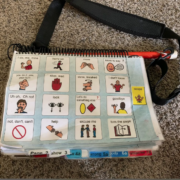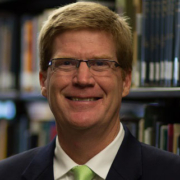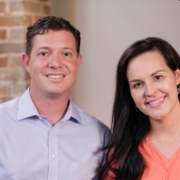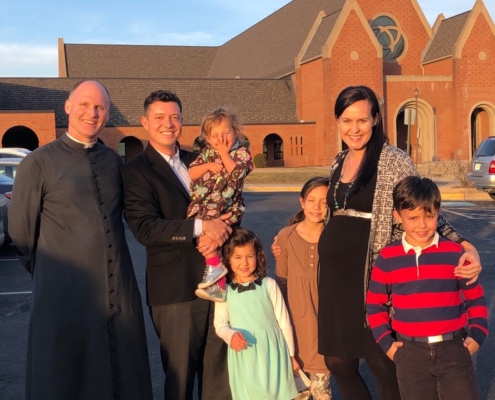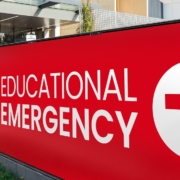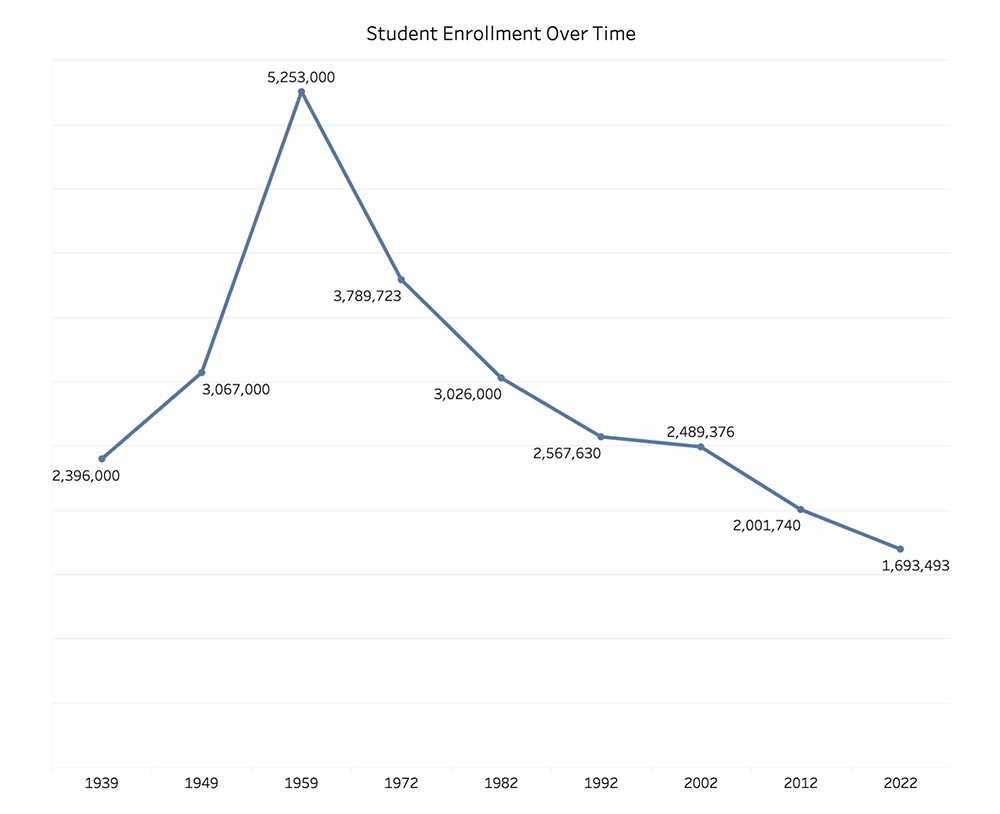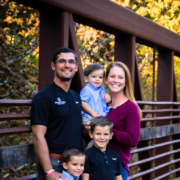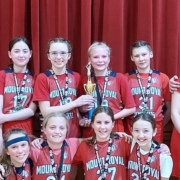Newman Guide School Embraces Students with Special Needs
A faithful Newman Guide Recommended school in Tyler, Tex., is inviting parents and educators to learn about its approach to educating students with complex communication needs, part of the school’s commitment to serving a wider variety of children and families.
“Be it known that Jesus Christ is the reason for our school!” said Principal John Kimec of Bishop T.K. Gorman Catholic School.
“Bishop Gorman is a community that is vibrant and will accept students from all walks of life and of all abilities—from the gifted to the disabled—and recognizes what each can contribute in their own unique way,” Kimec continued. “All are called to sainthood and to be educated in a manner commensurate with their abilities.”
In fall 2023, Bishop Gorman opened a small program for five students of varying ages with special needs. The Culture of Life Foundation, which was founded by John’s wife Lindsay, provided grants to hire a teacher and aides, cover tuition for the five students, and convert a classroom into a sensory and therapeutic center.
The teacher and aides utilize the Pragmatic Organization Dynamic Display (PODD) approach to helping students with complex communication needs. Bishop Gorman will host training in this PODD approach in March 2024 for Catholic parents and educators.
“It has been wonderful to see the impact of the program almost immediately,” said Lindsay Kimec. “The Bishop Gorman school community has truly embraced the students and program, and we are extremely grateful.”
“Teachers have volunteered to help create artwork and music breaks [with the students], and several teachers and parents have commented that they’re ‘seeing a whole new side to their students and love it!’” she continued.
The Cardinal Newman Society’s Kelly Salomon, vice president of Newman Guide programs, recently caught up with Lindsay Kimec to learn more about how Catholic schools across the country can embrace students with special needs.
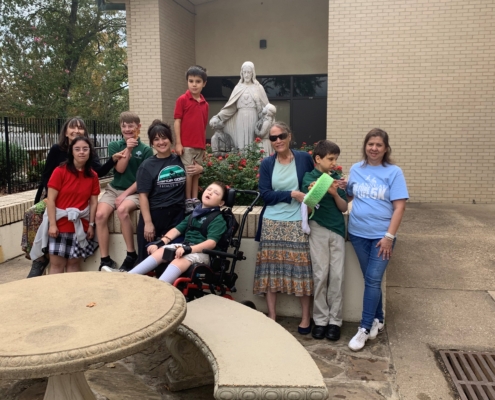
In fall 2023, Bishop Gorman opened a small program for five students of varying ages with special needs.
Q: What has been your experience of students with special needs being included in Catholic schools?
A: Over the past several years, we have begun to experience an increased openness—and in some cases, desire—to include those with special needs in Catholic education and participation in the fullness of the sacraments and life of the Church. But there is still much work to be done!
We have had the great privilege of meeting some truly amazing families and individuals with special needs and exceptional abilities in different parts of the nation over the years, and for most of them, the only option for education is the public school system or homeschooling. We have found that this is due to many reasons—one simple one being that this is simply how it’s been done, and many have gotten used to thinking that individuals with special needs and their families are cared for by public education.
The great news is that we may be at one of those pivotal points in Catholic education. Many are waking up to the state of the culture, Church, and the state in our hearts. Our son, Michael, has been a conduit of God’s mercy for our family to begin to see things anew, and I firmly believe that he and others like him with special needs and exceptional abilities have so much to offer—not just for our families, but for our Church and world! I believe if we work towards and fully embrace individuals with special needs and their unique gifts into our Catholic schools and sacramental preparation, more of God’s mercy and love would be poured into our hearts, schools, Church, and world.
Q: What steps can Catholic schools take to welcome students with special needs and their families? Why is this important?
A: I think the first word that comes to mind is “proactive.” As Christians we must continue to encourage one another to be proactive—never tire of running the race that lies before us. I love the quote from Our Lady of Good Help to Sr. Adele, “Gather the children in this wild country and teach them what they need to know for their salvation.” Let’s be proactive in finding more ways to love and serve each child and to teach them the Faith.
Many families of children with special needs are perpetually advocating for their child or children, so if we can step into that breach and say through our actions, “rest awhile, you’re safe here. There is room in the inn here. We love and need your child’s unique person and gifts,” then this itself is like a miracle for many families. There are just not many outreaches for children with special needs and their families who are Catholic. There is a lot of work to do!
Some simple things that can be done are to try to talk to individuals with special needs and their families after Mass. We’ve also talked to priests about our son’s journey with the sacraments and our own spiritual needs. I often say that with the intensity of life, we need that much more intense spiritual help/life—and believe me, we need it! And so do individuals with special needs. They have daily physical, mental, emotional, and spiritual battles too—some much more than any of us can fathom. Finally, we have also organized open gyms at the local Catholic school that begin with a priest offering a reflection, blessing, and prayer, and it all ends with refreshments. This has been a fun way to enable people to enjoy some community and prayer in more of an informal environment, and it gives us and volunteers more of an opportunity to see and understand a bit more of the needs among us.
The second word that comes to mind is to become “equipped.” Any proactive parent who has a child with special needs seeks to educate themselves to offer the best medical help, therapies, opportunities, and experiences for their child. School personnel can also equip themselves to best reach any child through continuing education, but most importantly listening to parents and what they’ve learned. Many things the parents learn from doctors and therapists have to be replicable in the home without specialized degrees or credentials, so then these practices and routines can also be learned by interested personnel in a school community.
Q: What inspired you to establish the Culture of Life Foundation?
A: I think the inspiration grew with different events in my life as well as people that seemed to be placed at just the right time throughout the years, so I think it’s probably been a passion placed in my heart by God from the beginning,
I would like to recognize my mom’s work in all this, as she planted a big seed in my heart. She has a great, magnanimous heart for seeing those in need and attending to this need in a most dignified way. Some of my earliest memories are of her sewing beautiful matching dresses for me and another little girl in my Kindergarten class so that the girl could have a dress and a new friend.
Also, my youngest sister, Kyra, was born with Down Syndrome. She is absolutely amazing, and I got to watch and learn so much from my mom. My mom had a dream when Kyra was in the second or third grade that one day there would be a Culture of Life school where anyone could receive a Catholic education.
Over the years, different events in my life fanned this seed into flame, and after going to the Shrine of Our Lady of Good Help in Wisconsin and hearing of Sister Adele’s story and her response to Our Lady’s call to catechize the children, I simply took the next step—a Novena to Our Lady of Good Help—and with permission from my mom, incorporated the Foundation in Minnesota in 2011.
Then, this was placed on hold for the next 11 years as we had our beautiful son, Michael, who happens to have Pierpont Syndrome. My husband has been my greatest support and encourager of continuing steps to work on the foundation when possible, and when we moved to Tyler, Tex., in 2022 all doors opened under Bishop Strickland’s prayers and love and understanding for the sanctity of life.
(Editor’s Note: Kelly Salomon’s brother-in-law is Linsday Kimec’s brother.)

